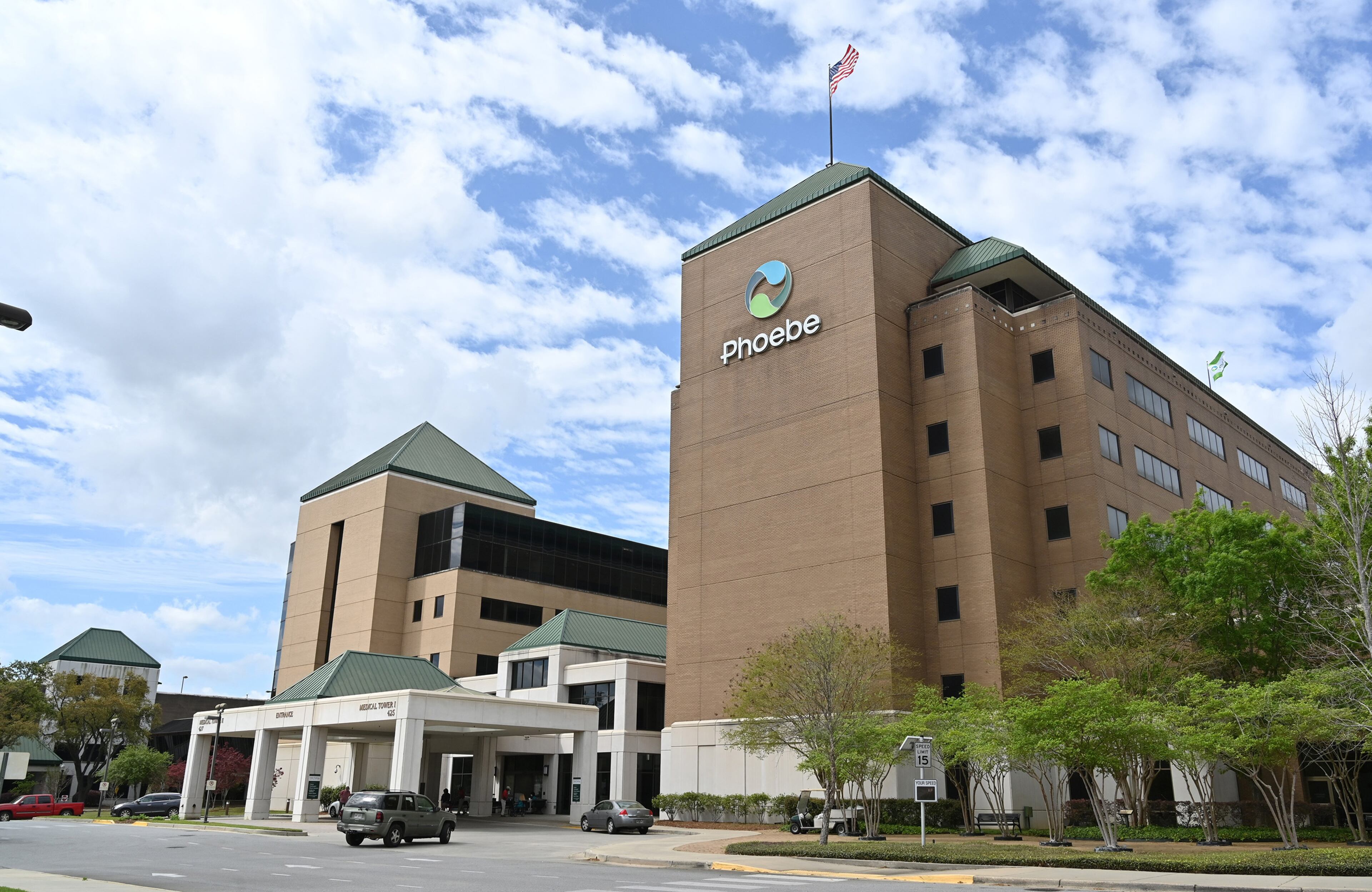Signs of progress in Georgia COVID fight carry a caveat: Our actions
One of Georgia’s top public health experts has offered a glimmer of hope, leavening the grim news in the state’s coronavirus fight.
A new statistical model suggests deaths in Georgia from the novel coronavirus should peak April 23, according to Dr. Carlos del Rio of Emory University. That means infections in the state will likely reach their highest point a few days before, del Rio said.
The prediction is dependent on the resolve of Georgians to maintain their social distance, and on increased testing by the state.
“I tell people my phrase is, let’s erase April,” del Rio said Sunday. “The most important thing we can do is stay home. Staying home saves lives. I really think by early May we’ll be fine.”
In a conference call with reporters, del Rio, executive associate dean of Emory University School of Medicine at Grady Health System, said the estimated date for a peak in Georgia is based on predictions from the Institute for Health Metrics and Evaluation. It’s “probably the best modeling group there is in the United States.”
According to that model, the number of Georgians dying from COVID-19, the disease caused by the virus, will peak on April 23 with an estimated 84 people dying on that day.

Del Rio’s comments came as the latest numbers in Georgia indicate that new infections in the state are slowing down.
On Monday, for the third day in a row, the number of new coronavirus cases slowed significantly in Georgia, even as deaths continued to climb, according to the latest data released by the Georgia Department of Public Health. There are now at least 3,028 confirmed cases of the virus statewide, according to the state public health agency. One hundred Georgians have died from COVID-19.
The latest data mark a frightful new frontier — the numbers of the dead are now in three figures — but they represent an increase of 7.7% from Sunday’s cases, much less than the roughly 30% daily growth the state saw last week. However, with Georgia still rationing its limited supply of test kits to the most vulnerable, those numbers are likely not a true depiction of the virus’s impact in Georgia.
AJC COMPLETE COVERAGE: CORONAVIRUS IN GEORGIA
While the pace of infections eased in some places, it spiked in others.
In Albany and surrounding communities, the confirmed death toll took a dramatic turn on Monday. The total number of dead across the region includes 40 confirmed COVID-19 cases. That represents 24 confirmed deaths in Albany and Dougherty County, and 16 cases in neighboring counties, including six in Terrell and five in Lee, according to local officials.
This southwest Georgia community is the hardest hit area in the state and one of the hardest hit in the country based on population size.
“Let’s keep them in prayer,” said Michael Fowler, the Dougherty County coroner. “Because it’s people that you know who are falling dead. Many of them you didn’t have time to say goodbye to them.”
Phoebe Putney Memorial Hospital on Monday reported 586 positive test results across its health system in southwest Georgia.

The state’s largest nursing home and assisted living trade association estimates there are as many as 30 senior care facilities that have residents who’ve tested positive for the virus.
One of them, the Rome Health & Rehabilitation Center in North Georgia, confirmed on Monday that 11 residents have tested positive at the facility. Two residents are being treated at the hospital.
“Any residents who are symptomatic are being isolated,” the facility said in a statement. “We recognize the especially vulnerable nature of those we serve and the staff who care for them.”
PHOTOS: METRO ATLANTA ADJUSTS TO CORONAVIRUS
Gov. Brian Kemp continued to balk at more stringent restrictions to curb the spread of coronavirus, inspiring the leaders of Georgia’s most influential cities to intensify the pressure on him to take more drastic action.
Sandy Springs Mayor Rusty Paul said a consensus emerged from about 50 mayors during a Monday conference call that a “statewide stay-at-home order and other policies were needed to remedy the inconsistent, confusing patchwork of policies now in place.”
The more aggressive approach comes after a weekend in which city officials were confused and frustrated by a post from Kemp top aide Tim Fleming that was critical of “overreach” of local government officials instituting steep restrictions.
In a Facebook post late Saturday, Fleming said “doomsday” models of the disease’s path have led to “people panicking and local governments across our state overreacting.”
“As a result of their overreach, many small businesses will struggle and some will not reopen,” Fleming said.

A growing number of mayors and county commissioners have authorized curfews, shuttered non-essential businesses and issued shelter-in-place orders in their communities. But it has led to a hodgepodge of uneven restrictions across the state that change by the day.
Powering the state’s efforts to curb the pandemic was the allocation of $100 million in mid-March to fight the disease. Kemp spent $20 million of that resource 10 days ago and put another $35 million into the fight Monday.
Also assisting in the effort is the University System of Georgia, which announced Monday that it will provide dozens of ventilators and hundreds of thousands of pieces of personal protective equipment from its 26 colleges and universities to help health workers fighting the coronavirus outbreak.
The state’s public colleges and universities announced that they will work with Kemp’s office, the Georgia Department of Public Health and the state’s emergency management agency to distribute the supplies. The equipment includes 38 ventilators, nearly 20,000 surgical and N95 respirator masks, and more than 375,000 gloves.
» Staff writer Brad Schrade contributed to this article.




